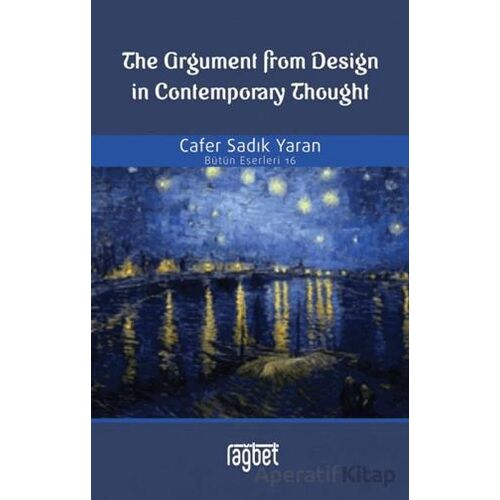The Argument From Design In Contemporary Thought - Cafer Sadık Yaran - Rağbet Yayınları
Hiç mesaj bulunmadı
| Taksit | Tutar | Toplam |
|---|---|---|
| Tek Çekim | 210.00 TL | 210.00 TL |
| 2 Taksit | 105.00 TL | 210.00 TL |
| Taksit | Tutar | Toplam |
|---|---|---|
| Tek Çekim | 210.00 TL | 210.00 TL |
| 2 Taksit | 105.00 TL | 210.00 TL |
| 3 Taksit | 73.50 TL | 220.50 TL |
| 4 Taksit | 55.65 TL | 222.60 TL |
| Ödeme Türü | Toplam Tutar |
|---|---|
| Diğer Kredi Kartları | 210.00 TL |
| Havale / Eft | 210.00 TL |
| Posta Çeki | 210.00 TL |
| Kapıda Ödeme | 225.00 TL |
Kapıda ödemeli siparişlerde +15,00TL kapıda ödeme hizmet bedeli ilave edilir. | |
- Vade farksız taksitler KOYU renkte gösterilmektedir.
- X+X şeklinde belritilen taksitler (Örneğin: 2+3) 2 taksit olarak işleme alınmakta ancak ilgili bankanın kampanyası dahilinde 2 taksit üzerinden işlem yapıldığı halde 2+3 yani 5 taksit olarak kartınıza ve ödemenize yansımaktadır. (2 taksit seçilmiş olsa bile banka kampanyası dahilinde ekstradan vade farkı eklenmeden işlem 5 taksite bölünmektedir.)
The Argument From Design In Contemporary Thought - Cafer Sadık Yaran - Rağbet Yayınları
The argument from design or the teleological argument is the oldest and most popular argument for the existence of a supernatural designer in general and of the God of traditional theism in particular. Especially in the seventeenth and eighteenth centuries, it became very popular and had most able and respected defenders among leading scientists, theologians and philosophers of the day. However, soon the argument had to face two forceful attacks coming from David Hume's direct philosophical criticisms in the later years of the eighteenth century, and that of the implications of Charles Darwin's works, nearly a century later. Since that time, the popularity of the argument has been in decline until the last twenty or thirty years when it has started to regain respectability in some scientific, philosophical and theological circles. It has found support in new scientific evidence and been reformulated, avoiding the traditional weaknesses, to meet the classical objections.











